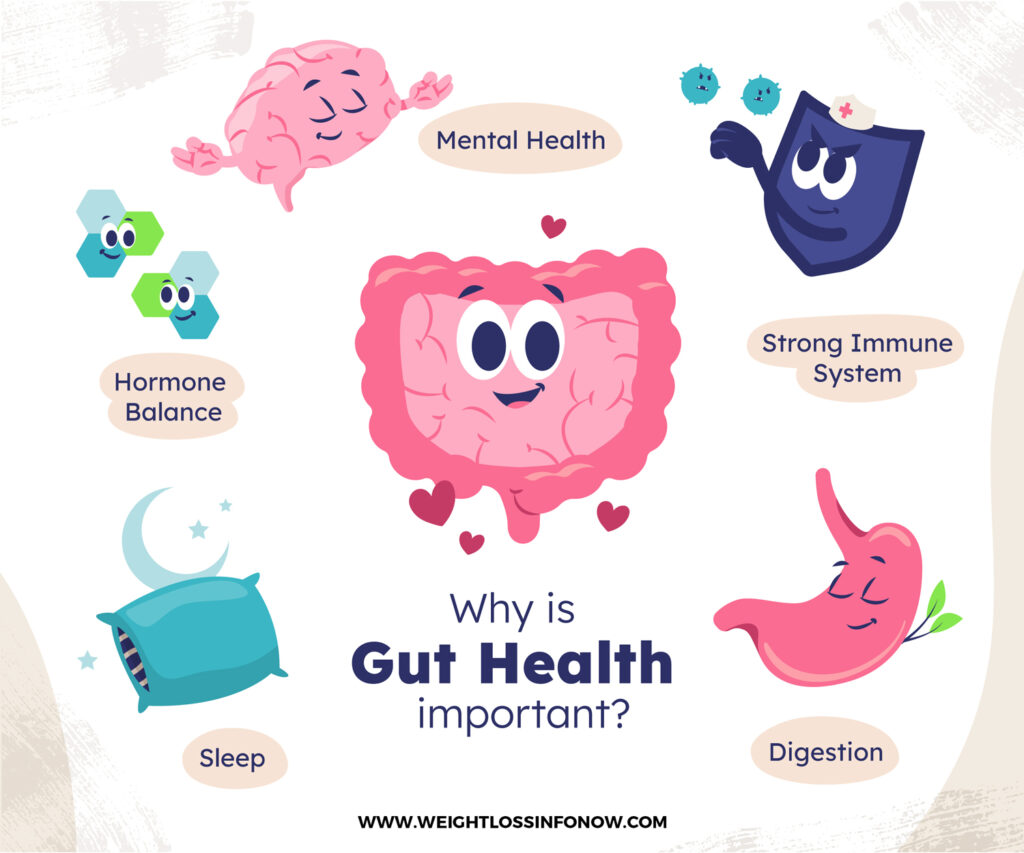Introduction
In the quest for a healthier and more vibrant life, it’s impossible to ignore the pivotal role that nutrition plays. From supporting overall well-being to influencing energy levels and even mental health, the importance of a balanced and nourishing diet cannot be overstated. This blog will delve into the various facets of why nutrition is so important and how it serves as the cornerstone of a robust and thriving lifestyle.
Table of Contents
Unlocking Optimal Wellness: Why Nutrition is So Important
Nutrition serves as the bedrock of a healthy and fulfilling life, influencing everything from energy levels to immune function. The food choices we make impact not only our physical health but also our mental well-being. By understanding why nutrition is so crucial, we empower ourselves to make informed decisions, fostering a balanced and vibrant lifestyle. It’s not just about eating; it’s about nourishing our bodies and minds to unlock our full potential.

1. Fueling Your Body:
Think of your body as a high-performance machine. To function optimally, it requires the right kind of fuel. Nutrition provides the essential nutrients—carbohydrates, proteins, fats, vitamins, and minerals—that serve as the building blocks for every cell, tissue, and organ in your body. A well-balanced diet ensures your body gets the necessary fuel to operate efficiently.
2. Energy Levels and Productivity:
Ever experienced that mid-afternoon energy slump? What you eat directly influences your energy levels. Foods rich in complex carbohydrates, healthy fats, and proteins release energy gradually, providing a sustained and steady source of fuel. On the contrary, sugary snacks and processed foods may lead to energy spikes followed by crashes, affecting your productivity and focus.
3. Immune System Support:

Nutrition plays a crucial role in bolstering your immune system. A diet rich in vitamins, particularly vitamin C, and minerals like zinc can enhance your body’s ability to fight off infections and illnesses. Consistently providing your immune system with the right nutrients is a proactive approach to overall health.
4. Weight Management and Metabolism:

Maintaining a healthy weight is not just about aesthetics; it’s a key component of overall well-being. Nutrition influences your metabolism—the process by which your body converts food into energy. A well-balanced diet helps regulate metabolism, making it easier to achieve and sustain a healthy weight.
5. Mental Health and Cognitive Function:
The link between nutrition and mental health is gaining prominence. Nutrient-rich foods, such as those high in omega-3 fatty acids, antioxidants, and vitamins, have been associated with improved mood and cognitive function. Conversely, a diet high in processed foods and sugars may contribute to mental health issues.
6. Disease Prevention:
Proper nutrition is a powerful tool in preventing chronic diseases. Diets high in fruits, vegetables, and whole grains have been linked to a reduced risk of heart disease, diabetes, and certain cancers. Making informed dietary choices is a proactive step toward a longer, healthier life.
7. Digestive Health:

A well-balanced diet contributes to good digestive health. High-fiber foods, like fruits, vegetables, and whole grains, support proper digestion and help prevent digestive issues such as constipation. Additionally, a healthy gut is closely linked to overall immunity and well-being.
Conclusion
In essence, the importance of nutrition goes far beyond just satisfying hunger. It’s a fundamental pillar of overall health and vitality. By understanding the profound impact of what you eat on your body and mind, you empower yourself to make informed and intentional dietary choices. Embrace the journey toward a nutritionally rich lifestyle, and witness the transformative effects it can have on your well-being. Remember, you are what you eat, so choose wisely for a healthier and happier you.
Frequently Asked Questions
Q1: Why is nutrition important for overall health?
A: Nutrition provides the essential building blocks for our bodies, supporting organ function, immune system strength, and overall well-being.
Q2: How does nutrition affect energy levels?
A: A balanced diet with the right mix of carbohydrates, proteins, and fats ensures a sustained release of energy, preventing energy spikes and crashes.
Q3: Can nutrition impact mental health?
A: Absolutely. Nutrient-rich foods contribute to improved mood and cognitive function, while poor dietary choices may negatively affect mental health.
Q4: Is maintaining a healthy weight connected to nutrition?
A: Yes, nutrition plays a pivotal role in weight management by influencing metabolism and supporting a healthy balance of calories.
Q5: How does nutrition contribute to disease prevention?
A: Diets rich in fruits, vegetables, and whole grains have been linked to a reduced risk of chronic diseases, including heart disease and certain cancers.
Q6: What role does nutrition play in digestive health?
A: A diet high in fiber from fruits, vegetables, and whole grains promotes proper digestion and helps prevent digestive issues like constipation.
Q7: Can nutrition boost the immune system?
A: Yes, certain nutrients, such as vitamin C and zinc, support immune function, helping the body defend against infections and illnesses.
Q8: How often should one review their nutrition habits?
A: Regularly assessing and adjusting nutrition habits is advisable, considering lifestyle changes, health goals, and evolving nutritional needs.
Q9: Are supplements necessary for good nutrition?
A: While a well-balanced diet is ideal, supplements can be beneficial to fill nutritional gaps. Consult with a healthcare professional for personalized advice.
Q10: Can nutrition impact physical performance?
A: Absolutely. Proper nutrition enhances physical performance by providing the necessary nutrients for muscle function, endurance, and recovery.



















